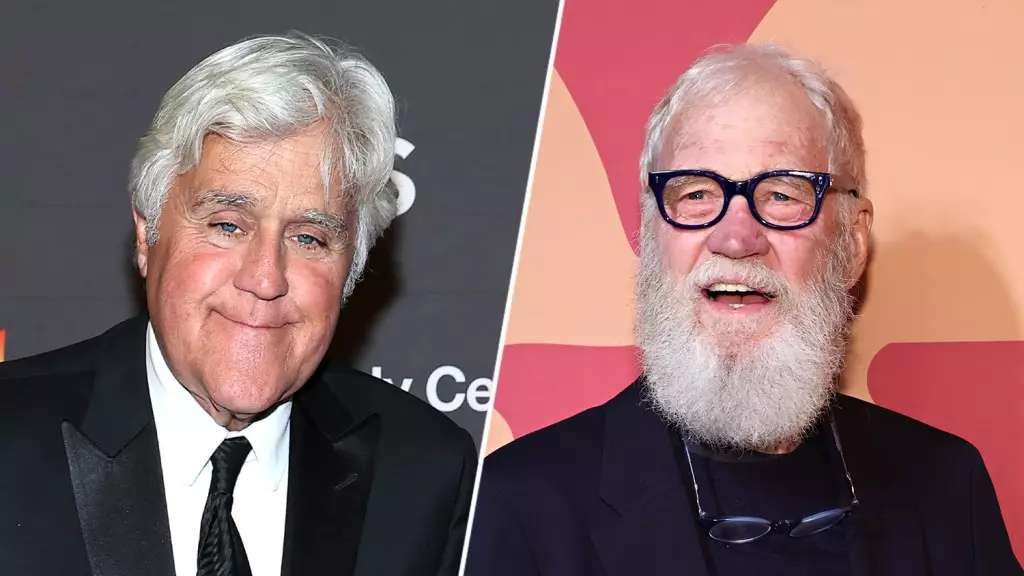In the realm of late-night television, few stories are as complex as the relationship between Jay Leno and David Letterman. Their rivalry is etched into the annals of TV history, fueled by competitive ambition and divergent comedic styles. Yet, as Leno boldly expresses a willingness to entertain the idea of a reunion, it brings forth a refreshing narrative of nostalgia and the potential for reconciliation. Over three decades since he first shared the stage with Letterman, Leno no longer appears shackled by their contentious past but is instead ready to explore a more amicable chapter.
Awkward Encounters and Authenticity
Leno’s candid remarks about the awkwardness of his previous interactions with Letterman paint a vivid picture of their dynamic. He jokes about an impromptu visit to Letterman’s Malibu residence, revealing the discomforts that come from two individuals whose lives have led them in different directions yet kept them tied to the same comedic roots. This unvarnished honesty enhances Leno’s relatability; it’s a reminder that even those at the pinnacle of their careers experience moments of uncertainty and social awkwardness. By acknowledging this, Leno distinguishes himself as a grounded figure, unafraid to expose the less glamorous side of fame.
The Nature of Comedy and Connection
At the heart of Leno’s statements lies an intriguing insight into the essence of comedy and personal relationships. He points out that, aside from their shared profession, the two comedic icons have little in common, particularly in interests like sports. This divergence leads to a type of humor that, while potentially conflicting, also underscores an essential truth: comedy thrives on contradiction and eccentricity. Both comedians have carved distinct paths in their careers, allowing their unique quirks to shine through. Understanding this may pave the way for a future collaboration, as their differences could feed into a humor that resonates with audiences who appreciate both styles.
A Cautious Yet Hopeful Future
While Leno enthusiastically entertains the idea of a reunion, he remains cautious, hinting at past experiences where he felt the sting of his efforts to mend fences. His reluctance to instigate a reunion signals a thoughtful approach rather than a desperate plea for attention. Leno’s acknowledgment of the unpredictability of human relationships adds depth to the conversation; he recognizes the inherent risks in revisiting old partnerships, particularly one as fraught as his and Letterman’s. This tempered perspective does not diminish his eagerness but rather accentuates the value of genuine reconciliation.
A New Era of Late Night?
If the stars align and the two legends decide to join forces again, it could signal a profound shift in the late-night landscape. The possibility of Leno and Letterman working together could kickstart a new era, blending their unique comedic styles and bridging the gap between their two significantly different comedic worlds. Such a reunion could present a golden opportunity to not only revisit their shared history but also to showcase how far they have come as individuals. Fans would certainly flock to this reunion, eager to witness how these two comedic giants navigate their past while crafting new laughs for a contemporary audience.
Leno’s willingness to engage in a reunion with Letterman may be rooted in more than just nostalgia; it represents an open-minded approach to the evolution of relationships and the enduring power of comedy in bringing people together.
